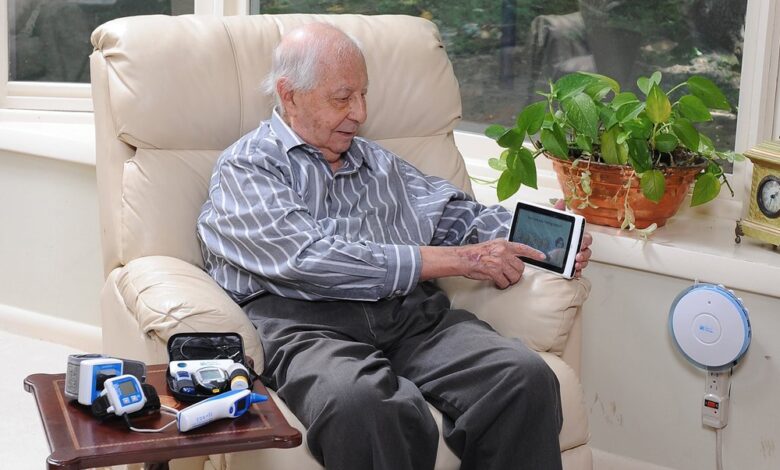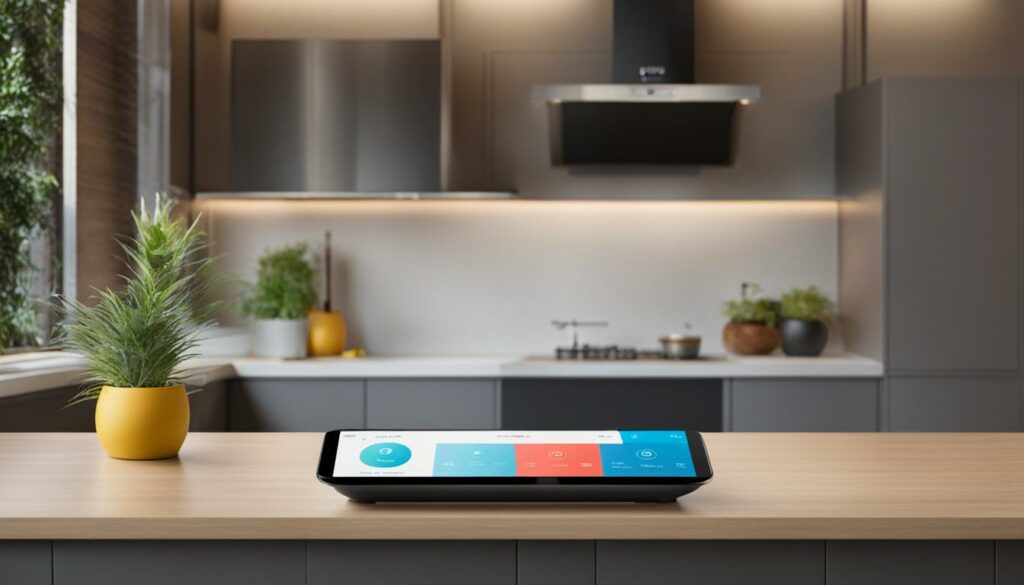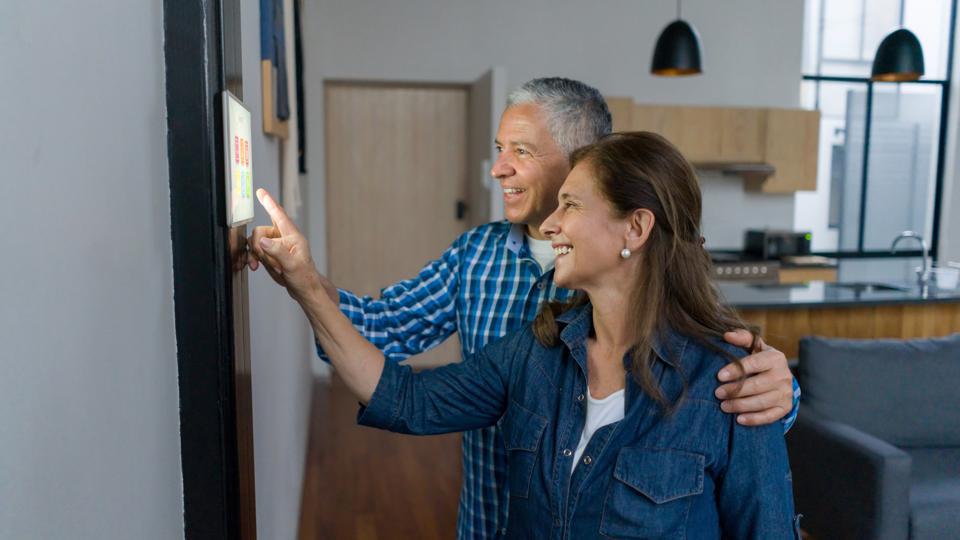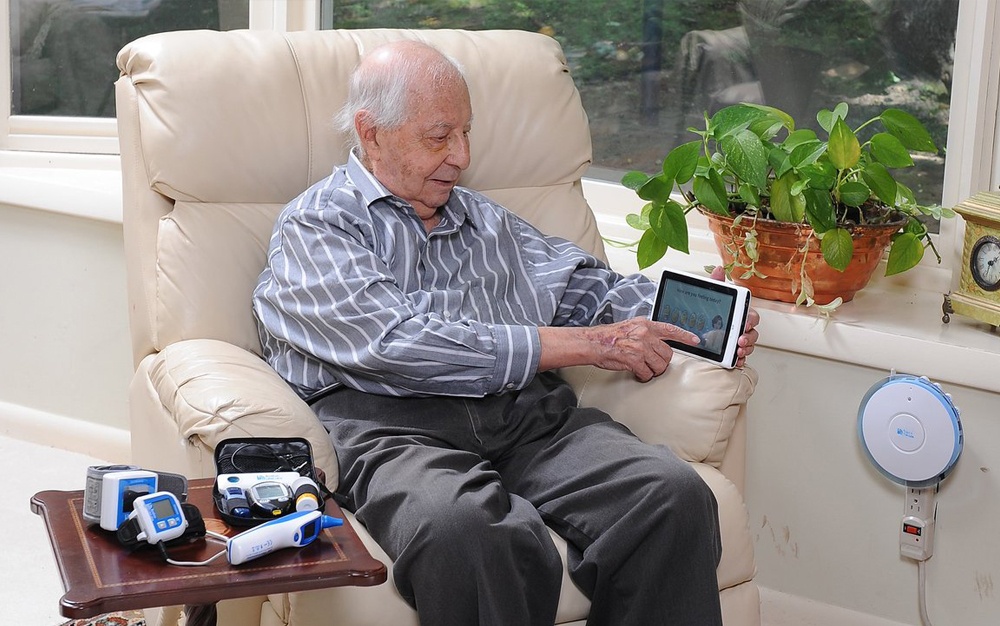
Smart Homes: Easier Aging in Place
Aging in place can be so much easier with smart home technology. Imagine a world where your home anticipates your needs, ensuring your safety, comfort, and independence as you age. This isn’t science fiction; it’s the reality of smart homes, where technology empowers seniors to live fulfilling lives in the familiar surroundings they love.
Smart homes are more than just a futuristic concept; they offer practical solutions to the challenges of aging in place. From simple voice-activated devices to sophisticated monitoring systems, these technologies can help seniors maintain their independence, connect with loved ones, and even improve their overall health and well-being.
The Challenges of Aging in Place

Aging in place, the ability to live comfortably and independently in one’s home as they age, is a desirable goal for many seniors. However, it’s crucial to acknowledge the numerous challenges that can arise, impacting their physical, emotional, and cognitive well-being.
Physical Challenges
As individuals age, they often experience a decline in physical abilities, leading to difficulties with daily activities.
- Mobility Issues:Reduced strength, balance, and flexibility can make it challenging to navigate stairs, walk long distances, or perform tasks like reaching for items on high shelves.
- Chronic Conditions:The prevalence of chronic conditions such as arthritis, heart disease, and diabetes increases with age, often requiring specialized care and adaptations in the home environment.
- Vision and Hearing Loss:Age-related vision and hearing impairments can make it difficult to read, drive, or communicate effectively.
These physical challenges can significantly impact daily life, making it difficult for seniors to maintain their independence and participate in activities they enjoy.
Emotional Challenges
Aging in place can also present emotional challenges.
- Social Isolation:As mobility and health decline, seniors may find it difficult to engage in social activities or maintain connections with loved ones. This isolation can lead to feelings of loneliness, depression, and anxiety.
- Loss of Independence:The need for assistance with daily tasks can be a source of frustration and a blow to one’s sense of self-worth.
- Fear of Falling:The fear of falling can lead to reduced mobility and a decline in overall activity levels, further impacting their health and well-being.
These emotional challenges can have a profound impact on a senior’s quality of life, making it essential to address them proactively.
Cognitive Challenges
Cognitive decline is a natural part of aging, but it can also pose significant challenges for seniors who choose to age in place.
- Memory Loss:Age-related memory loss can make it difficult to remember appointments, medications, or even basic tasks.
- Difficulty with Decision-Making:Cognitive decline can impact decision-making abilities, leading to difficulty managing finances, making medical decisions, or even choosing what to wear each day.
- Increased Risk of Dementia:While not everyone experiences dementia, the risk increases with age, and it can significantly impact daily life, requiring specialized care and support.
Cognitive challenges can significantly impact a senior’s ability to live independently, making it essential to provide support and resources to help them manage these changes.
Smart Home Technology
As the population ages, the desire to remain in one’s home for as long as possible becomes increasingly prevalent. This concept, known as aging in place, presents unique challenges, including maintaining safety, independence, and overall well-being. Fortunately, the rise of smart home technology offers a compelling solution to address these challenges, empowering seniors to live more comfortably and securely in their familiar surroundings.
Smart Home Technology: Enhancing Safety, Comfort, and Independence
Smart home technology can significantly enhance the quality of life for seniors by addressing various aspects of their daily routines. From monitoring their health to ensuring their safety and comfort, these devices provide a layer of support and convenience that can make a significant difference in their overall well-being.
Safety and Security
Smart home technology plays a crucial role in enhancing safety and security for seniors, providing peace of mind for them and their loved ones.
Aging in place can be so much easier with smart home technology, allowing seniors to live independently and comfortably. It’s fascinating how global economic factors can impact even our daily lives, like the recent decline of the Japanese Yen, which has reached its weakest point in 20 years.
This analysis dives into the reasons behind the Yen’s weakness and its potential implications. Understanding these economic shifts helps us appreciate the interconnectedness of our world and how they can influence our personal choices, such as investing in smart home solutions for a more secure and comfortable future.
- Smart door locks:These locks allow seniors to remotely control access to their homes, eliminating the need to fumble with keys. They can also be programmed to automatically lock or unlock at specific times, adding an extra layer of security.
- Smart security cameras:These cameras can be used to monitor the home remotely, providing peace of mind for seniors and their families. Some cameras offer features like motion detection, which can alert users to potential intruders or falls.
- Smart lighting:Smart lights can be programmed to turn on and off automatically, eliminating the need for seniors to manually switch them on and off. This feature is particularly beneficial for seniors with mobility issues, as it reduces the risk of falls.
- Smart smoke detectors and carbon monoxide detectors:These devices can alert seniors to potential hazards like fire or carbon monoxide poisoning, giving them time to evacuate or take appropriate action.
Comfort and Convenience
Smart home technology can significantly improve the comfort and convenience of seniors’ daily lives.
- Smart thermostats:These thermostats can be programmed to automatically adjust the temperature of the home based on the senior’s preferences and schedule, ensuring optimal comfort levels throughout the day.
- Smart appliances:Smart appliances, such as refrigerators and ovens, can be controlled remotely, allowing seniors to easily manage their household tasks.
- Smart voice assistants:These assistants can be used to control various smart home devices with voice commands, making it easier for seniors with limited mobility to interact with their surroundings.
Independence and Accessibility
Smart home technology empowers seniors to maintain their independence and live more fulfilling lives.
Imagine a world where your aging loved ones can live comfortably and independently in their own homes, thanks to the convenience of smart home technology. This is the future we’re building, and it’s a future where even the most complex tasks can be simplified.
Just like Robert Gates said in his transcript on leadership , “The key to success is not just about the big picture, but about the details.” Smart home technology allows us to focus on those details, making aging in place a reality for everyone.
- Smart medication reminders:These devices can help seniors stay on top of their medication schedules, reducing the risk of missed doses.
- Smart fall detection systems:These systems can automatically detect falls and alert emergency services, providing critical assistance in emergency situations.
- Smart home automation:Smart home automation can be used to simplify daily tasks, such as turning on lights, adjusting the thermostat, or locking doors, making it easier for seniors to manage their homes.
Benefits of Smart Home Technology for Seniors
The benefits of smart home technology for seniors are numerous and far-reaching, offering a range of advantages that can significantly enhance their quality of life.
| Smart Home Device | Benefits for Seniors |
|---|---|
| Smart door locks | Enhanced security, remote access control, ease of use for seniors with mobility issues. |
| Smart security cameras | Remote monitoring, fall detection, intruder alerts, peace of mind for seniors and their families. |
| Smart lighting | Automatic light control, reduced risk of falls, enhanced safety and convenience. |
| Smart thermostats | Optimized temperature control, energy efficiency, personalized comfort settings. |
| Smart appliances | Remote control, simplified task management, increased independence for seniors. |
| Smart voice assistants | Hands-free control, accessibility for seniors with limited mobility, convenient interaction with smart home devices. |
| Smart medication reminders | Improved medication adherence, reduced risk of missed doses, enhanced health management. |
| Smart fall detection systems | Emergency response in case of falls, increased safety and security, peace of mind for seniors and their families. |
| Smart home automation | Simplified daily tasks, increased independence, enhanced convenience and accessibility. |
Smart Home Technology for Enhanced Safety: Aging In Place Can Be So Much Easier With Smart Home Technology

Smart homes offer numerous benefits for seniors, particularly in enhancing safety and peace of mind. By integrating smart devices and technology, seniors can create a safer and more comfortable living environment.
Smart Home Devices for Enhanced Safety
Smart home devices can play a crucial role in preventing accidents and providing peace of mind for seniors. Here are some examples of smart devices that can improve safety:
- Smart lighting:Automated lighting systems can illuminate walkways, stairwells, and rooms, reducing the risk of falls and injuries. Motion sensors can activate lights when a senior enters a room, providing instant illumination. Smart bulbs can also be programmed to automatically turn on and off at specific times, ensuring sufficient lighting throughout the day and night.
- Smart door locks:Smart locks allow seniors to remotely lock and unlock doors, eliminating the need to fumble with keys. They can also provide real-time alerts when a door is opened or closed, offering peace of mind and increased security. Some smart locks even allow family members to unlock the door remotely if a senior is unable to do so themselves.
- Smart smoke detectors:Smoke detectors are essential safety devices, and smart smoke detectors offer enhanced features. They can send alerts to a smartphone or tablet, even when the senior is away from home. Some smart smoke detectors also integrate with other smart home devices, such as smart lights, to automatically trigger an emergency response.
- Smart fall detection:Fall detection devices can automatically detect falls and send alerts to family members or emergency services. These devices typically use sensors that monitor movement and can differentiate between a fall and normal activity. Some fall detection devices are integrated into smartwatches or wearable devices, while others are standalone units that can be placed around the home.
- Smart home security systems:Smart home security systems provide comprehensive protection against intruders and other threats. They can include motion sensors, door and window sensors, and cameras that can be monitored remotely. Some systems also offer features like two-way communication, allowing seniors to speak with security personnel if they feel threatened.
Connecting Seniors with Family and Caregivers
Smart home technology can also help seniors stay connected with family and caregivers, enhancing their well-being and reducing feelings of isolation.
- Video doorbells:Video doorbells allow seniors to see who is at their door before opening it, providing a sense of security and reducing the risk of unwanted visitors. They can also be used to communicate with family members or caregivers remotely.
Some video doorbells also offer features like motion detection and night vision.
- Smart home assistants:Smart home assistants like Amazon Alexa and Google Assistant can provide seniors with companionship and assistance. They can answer questions, play music, and even make calls. Some assistants also offer features like medication reminders and appointment scheduling, helping seniors manage their daily routines.
- Telehealth platforms:Telehealth platforms allow seniors to connect with healthcare providers remotely via video conferencing. This can be especially beneficial for seniors who have difficulty traveling or who prefer to receive care in the comfort of their own homes.
- Smart home monitoring systems:Smart home monitoring systems can provide family members with peace of mind by allowing them to remotely check on their loved ones. These systems can monitor activities like movement, door openings, and temperature, sending alerts if anything unusual is detected.
Smart Home Technology for Enhanced Comfort and Convenience
Aging in place can be challenging, but smart home technology can make a world of difference in enhancing the comfort and convenience of daily living for seniors. Smart home devices can automate tasks, improve accessibility, and provide peace of mind, allowing seniors to maintain their independence and enjoy a higher quality of life.
Automation for Enhanced Comfort
Smart home technology can automate various tasks, simplifying daily routines and reducing the burden on seniors. For example, smart thermostats can automatically adjust the temperature based on the time of day or the presence of occupants, ensuring optimal comfort without requiring manual adjustments.
Smart lighting systems can be programmed to turn lights on and off at specific times, eliminating the need to fumble with switches.
Accessibility and Convenience
Smart home devices can also enhance accessibility for seniors with limited mobility or dexterity. Voice-controlled assistants like Amazon Alexa or Google Assistant can be used to control lights, appliances, and entertainment systems without the need for physical interaction. Smart locks allow for keyless entry, eliminating the need to carry keys or remember complex combinations.
Smart home technology can truly transform the aging-in-place experience, offering a sense of independence and peace of mind. Imagine being able to control your lights, thermostat, and even appliances with voice commands, all from the comfort of your own home.
This kind of accessibility can be particularly beneficial for those with limited mobility or cognitive decline. And while we’re on the topic of technology and its impact, it’s interesting to see how advancements in AI and automation are being used in areas like the analysis to hobble Putin accelerate the brain drain – a stark reminder of how technology can be used for both good and bad.
But back to the topic at hand, smart home technology truly empowers seniors to age gracefully and independently, creating a more comfortable and fulfilling life at home.
Examples of Smart Home Devices, Aging in place can be so much easier with smart home technology
Here are some examples of how different smart home devices can improve the quality of life for seniors:
| Device | Benefits for Seniors |
|---|---|
| Smart Thermostat | Maintains optimal temperature, reduces energy costs, and eliminates the need for manual adjustments. |
| Smart Lighting | Provides adequate lighting for safety and comfort, reduces the risk of falls, and can be programmed to turn on and off automatically. |
| Smart Locks | Allow for keyless entry, eliminating the need to carry keys or remember combinations, and can be remotely controlled. |
| Voice-Controlled Assistant | Provides hands-free control of lights, appliances, entertainment systems, and more, enhancing accessibility for seniors with limited mobility or dexterity. |
| Smart Security System | Provides peace of mind with motion sensors, door and window sensors, and remote monitoring capabilities. |
| Smart Appliances | Automate tasks like cooking, laundry, and dishwashing, reducing the burden on seniors. |
| Smart Health Monitors | Track vital signs and provide alerts for potential health issues, enabling early intervention and improved health outcomes. |
Smart Home Technology for Improved Health and Well-being

Smart home technology is not just about convenience; it can play a crucial role in promoting healthy aging and improving overall well-being. These devices can seamlessly integrate into daily life, offering discreet support and encouraging healthy habits.
Health Monitoring and Management
Smart home technology can help individuals track their health metrics and manage their well-being effectively.
- Wearable fitness trackerscan monitor heart rate, sleep patterns, and activity levels, providing valuable insights into overall health and fitness. These devices can also send alerts if any concerning trends are detected.
- Smart scalescan track weight and body composition, offering a comprehensive view of physical health. This information can be shared with healthcare providers, facilitating proactive health management.
- Medication dispenserscan provide timely reminders for medication, reducing the risk of missed doses. Some dispensers even allow for communication with healthcare providers, ensuring that medication adherence is monitored closely.
Cognitive Function and Mental Well-being
Smart home technology can support cognitive function and promote mental well-being in several ways.
- Cognitive training appsoffer engaging exercises that challenge the brain and help maintain cognitive sharpness. These apps can be accessed on smartphones, tablets, or smart displays, making it convenient to engage in brain-boosting activities.
- Smart assistantscan provide reminders for appointments, tasks, and important events, reducing stress and promoting mental clarity. These assistants can also offer personalized recommendations based on individual preferences, enhancing overall well-being.
- Video conferencing devicescan facilitate communication with loved ones, reducing feelings of isolation and promoting social interaction. This is particularly beneficial for individuals who may have limited mobility or difficulty leaving their homes.
Wrap-Up
As technology continues to evolve, the possibilities for smart homes to enhance aging in place will only expand. With careful planning and implementation, these innovative solutions can create a future where seniors can thrive in their own homes, surrounded by comfort, security, and the support they need to live their best lives.
The future of aging in place is bright, and smart home technology is paving the way for a more independent, fulfilling, and connected experience for seniors everywhere.






